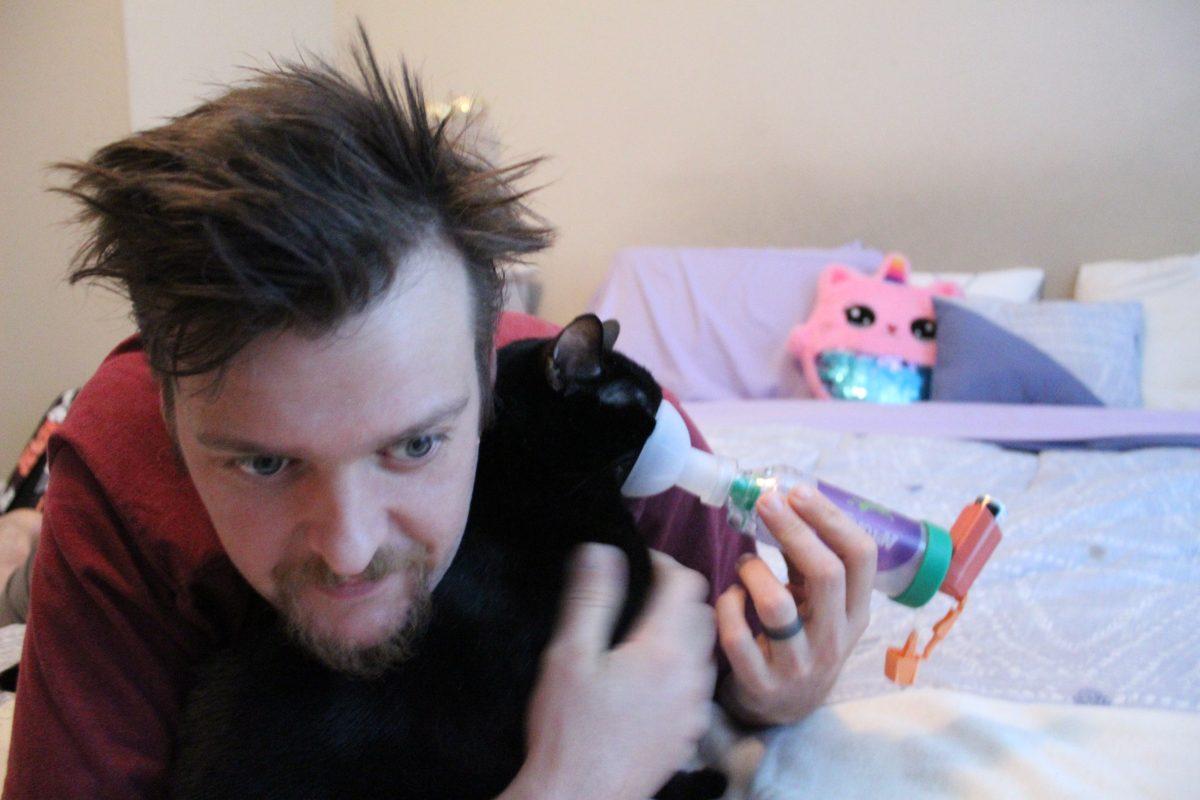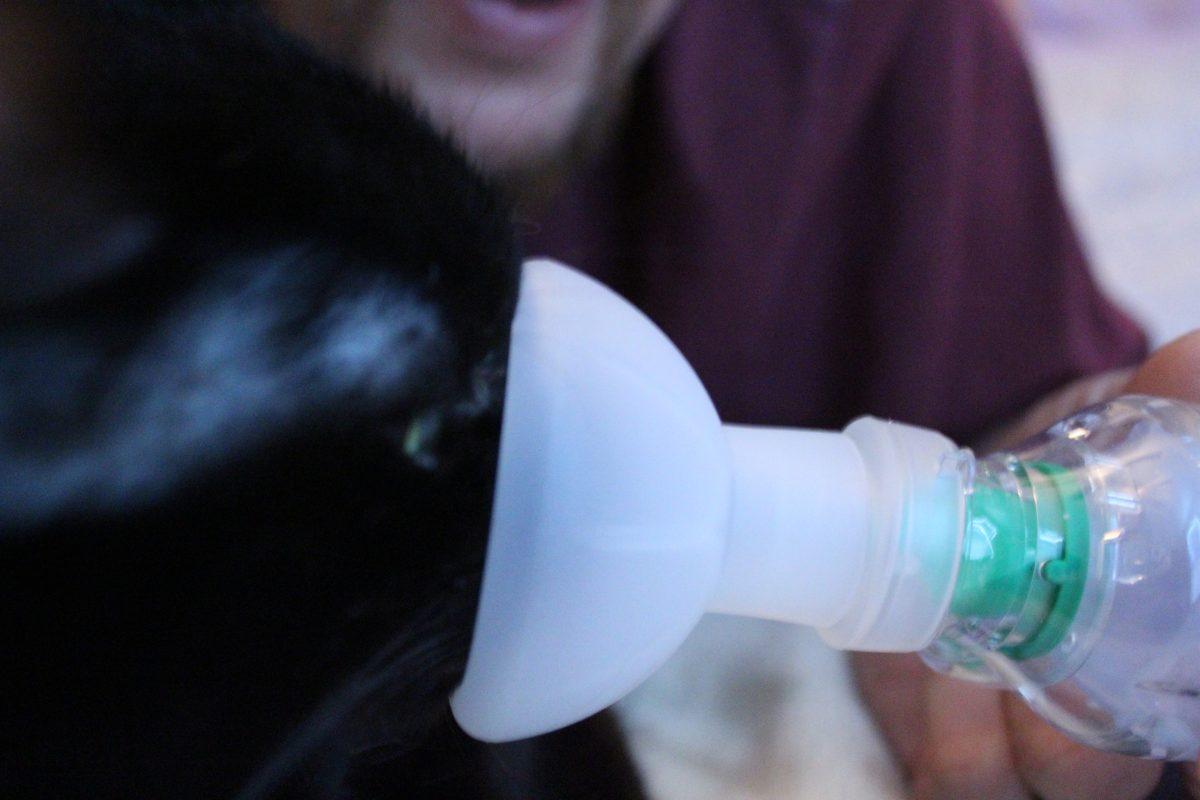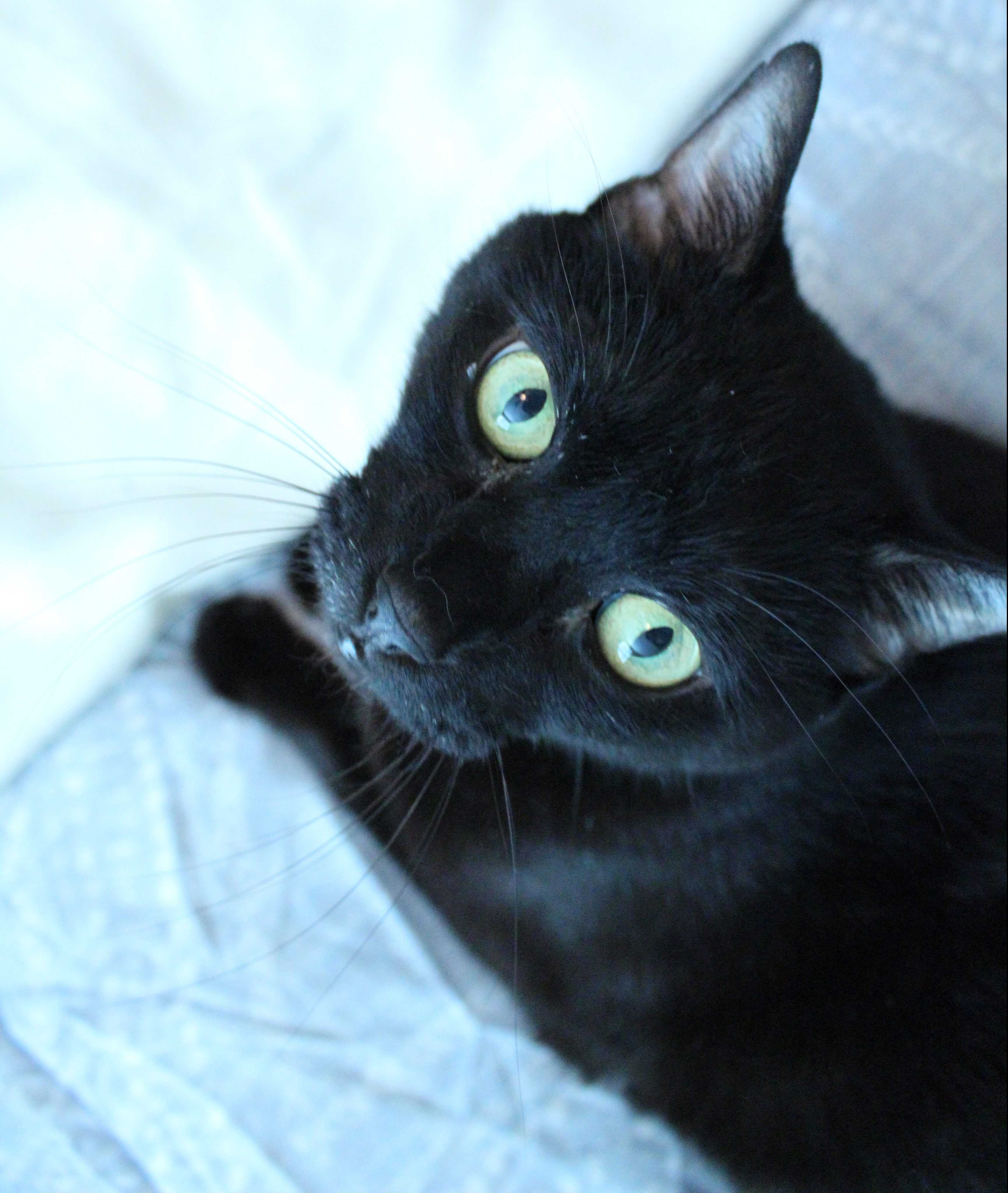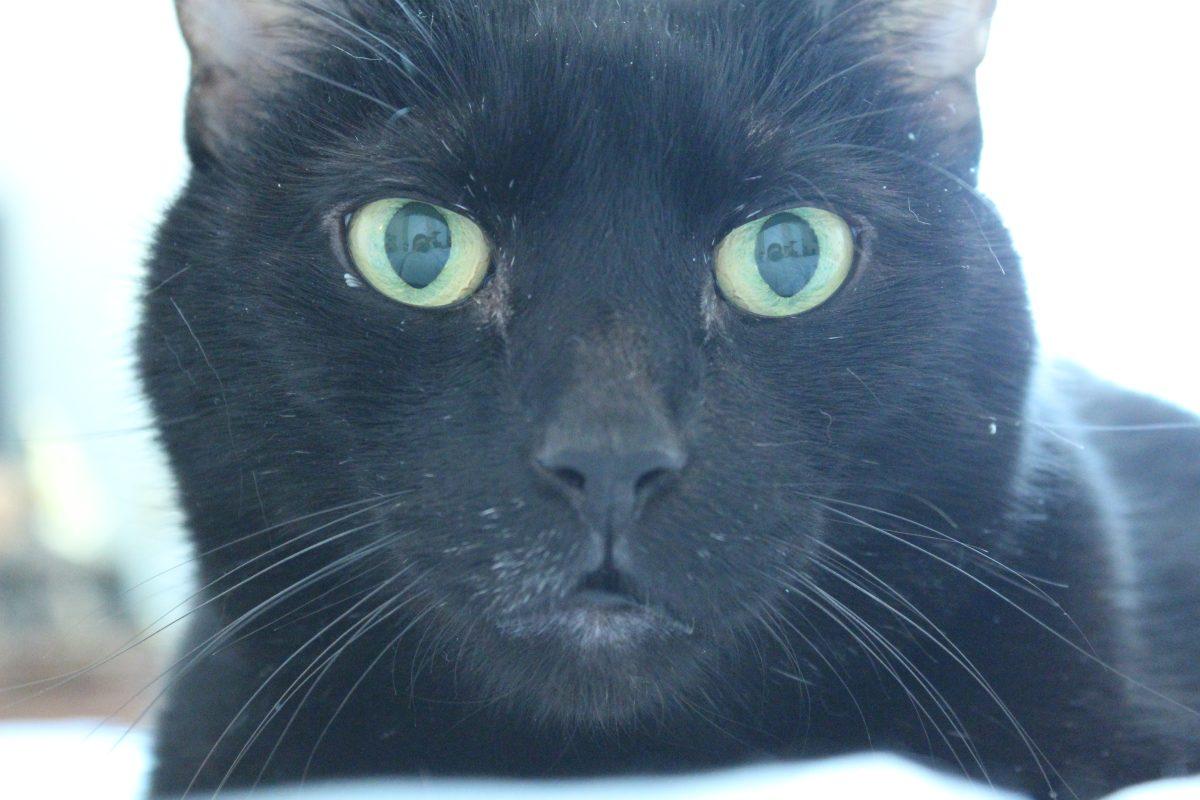
September 7th began as mundane as any given Monday night until the clock struck 10pm when at that moment, James Guard and Midnight’s world turned upside down. Midnight is a 10-year-old male black cat who is normally a very loving and active cat, but after hopping down from the couch, suddenly he couldn’t move or even breath. He was experiencing an asthma attack. Striking over 1% of the world’s entire feline population, feline asthma is one of the most commonly diagnosed respiratory disorder in cats. It is incurable. Midnight’s panicked owners rushed him to the animal emergency hospital in Conroe where they were informed, he was in a full-blown asthmatic attack and needed help quick or he could die.

After waiting four hours outside the animal hospital due to the COVID-19 pandemic, James learned that Midnight had been experiencing minor symptoms for some time. Mouth breathing is a common symptom in felines with asthma. This can indicate a hard time breathing before a full-on attack occurs. Most cats spotted with their mouths open are often written off as trying to cool down on a hot day or recouping after lots of exercise. Since cats are primarily nasal breathers, it is easy to mistake the action. A cat experiencing a full-on attack will mimic the posture and sounds of coughing up a hairball – low to the ground and heaving. Often this is mistaken as an attempt to cough up a hairball. This was a mistake Midnight’s owner made that led him to the emergency room.
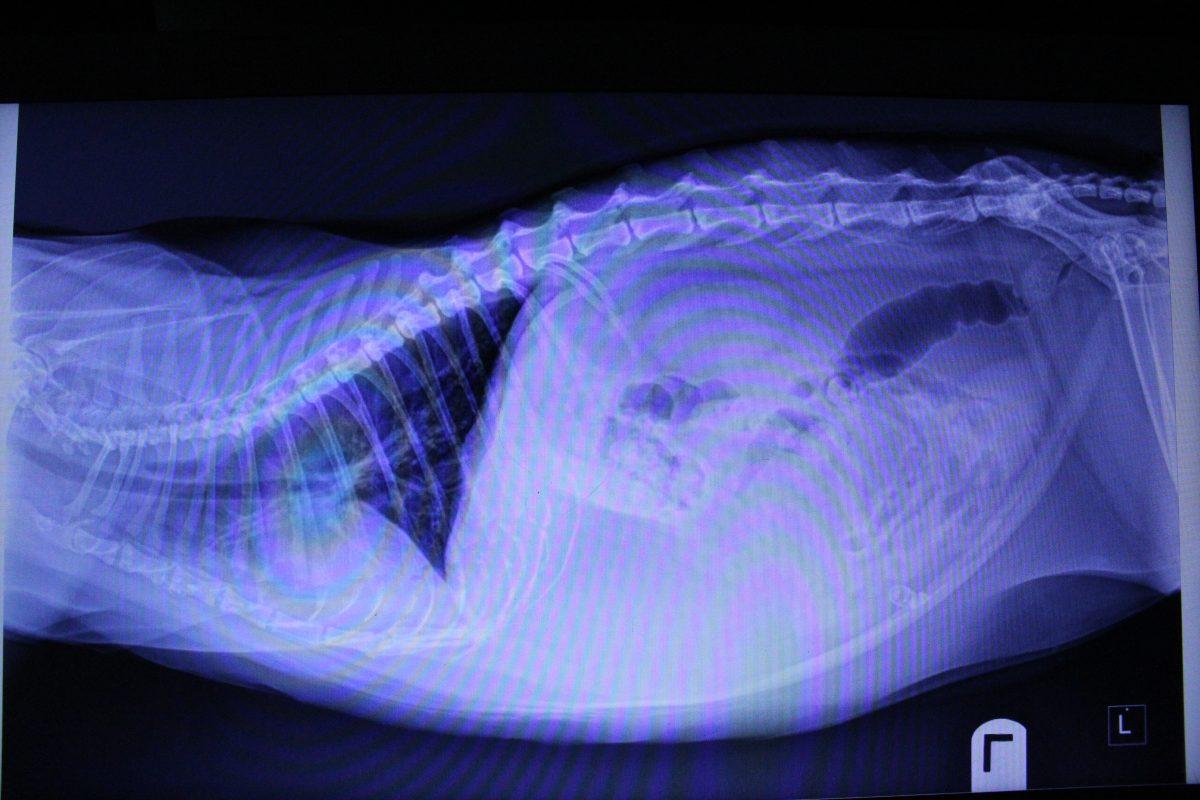
An x-ray of the left thorax which was used to determine his diagnosis shows the abnormality in his breathing pattern. As asthmatic attack occurs when the airway becomes inflamed and swells, limiting the amount of oxygen getting into the cat’s lungs. Feline asthma is so common that it has become a specialty for small animal veterinarians. Like humans with asthma, cats who experience attacks are treated with inhalers.
Midnight has the same inhaler a doctor would prescribe to a person. The prescription is filled at the local pharmacy at a cost of $300 for a 30-day supply. After shaking the canister, Guard, inserts the inhaler into the AeroKat attachment that goes over Midnight’s snout.
It is important to ensure the attachment fits tightly over the snout for five to sixth breaths. When Midnight experiences a sudden onset attack, this process will be repeated every twelve hours until he is breathing comfortably. He is given treats after the treatment to make the process less stressful and to get him more comfortable with the process.
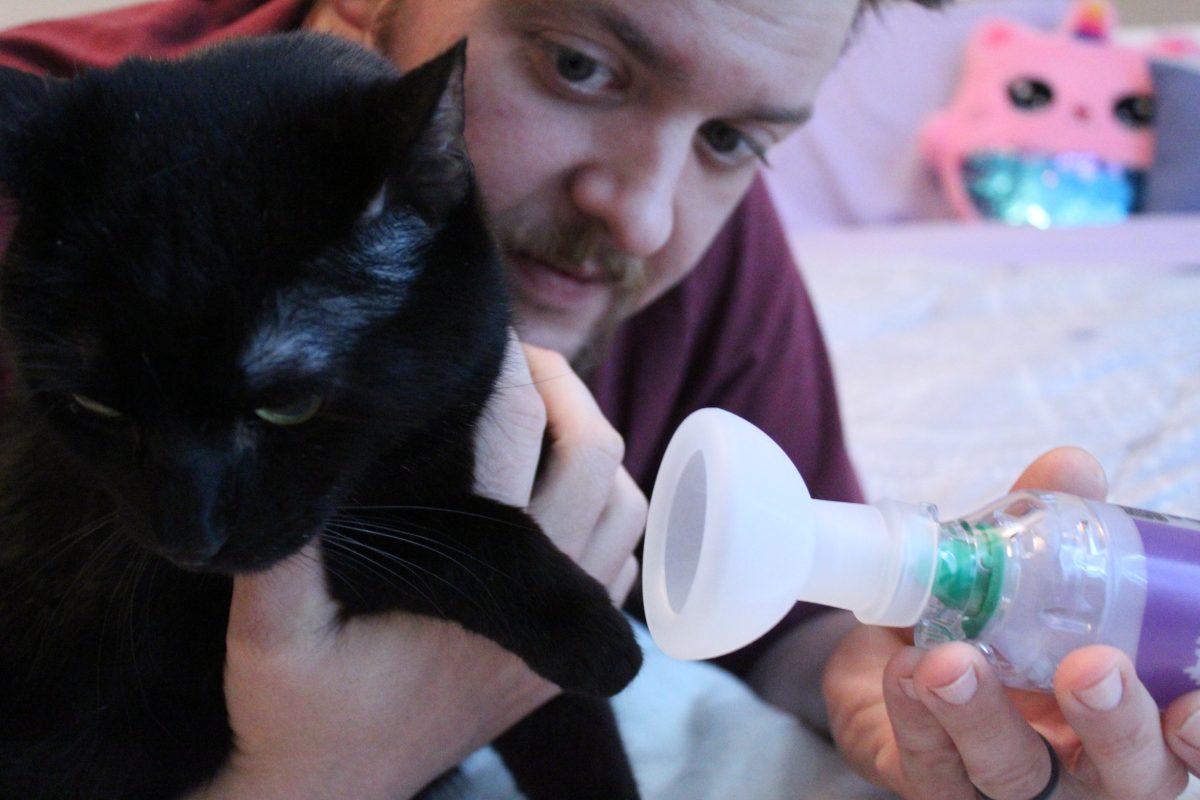
Changes in behavior are hard for cats and a foreign object being placed over their face can provide new stress. Steroids and cough suppressants were prescribed to help alleviate minor attacks if he is exposed to any allergens such as regular kitty litter or pollen.

To avoid attacks, Midnight is kept in the bedroom away from all other pets and his exercise cannot be too strenuous. James plays with him a few minutes in the morning and few minutes in the evening to make sure he gets his needed exercise while monitoring his activity levels. Midnight is able to play after he’s had his inhaler.
Due to consistency with his treatment, monitoring of allergens within his home and attending regular vet appointments to monitor his progress. He will have to stay on his medicine for at least a year and then he will be reevaluated but as for now, his prognosis is good.



